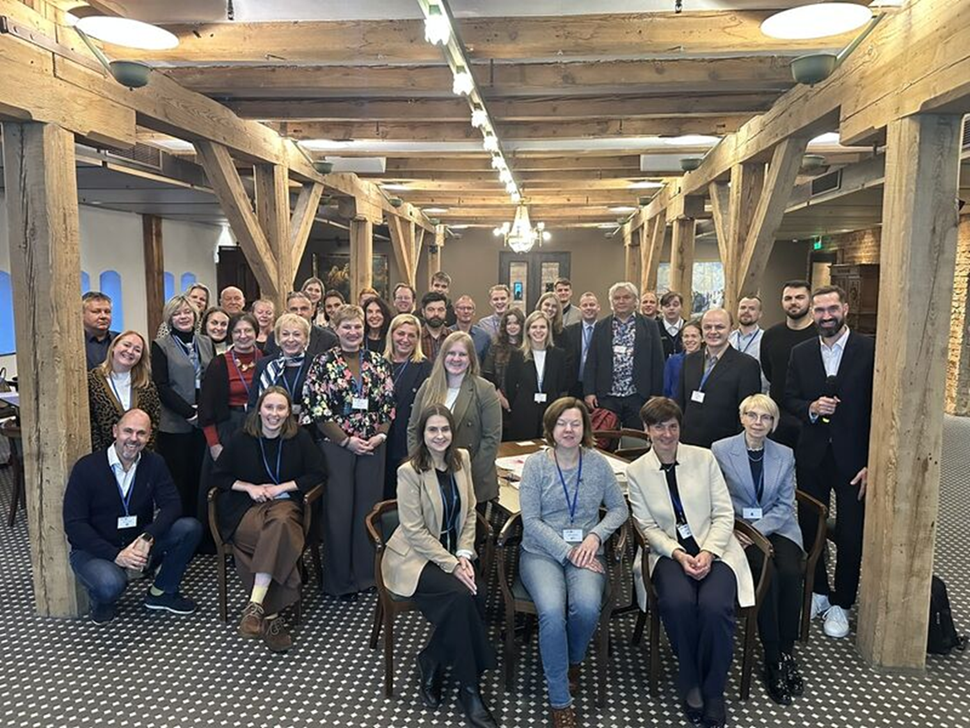
Blue Economy Innovation Seminar in Liepāja Strengthens Regional Collaboration for a Sustainable Baltic
On 23–24 October 2025, more than 50 participants representing 35 organizations from Latvia and abroad gathered in Liepaja for the seminar “Latvia–Estonia: Marine Technology Excellence Platform for a Sustainable Blue Economy in the Baltic Sea.”
The event brought together scientists, entrepreneurs, policymakers, and coastal community representatives to exchange ideas, share experiences, and foster new cooperation and innovation opportunities in the fields of marine technology and the blue economy.
Among the participants were representatives from the Latvian Institute of Aquatic Ecology, Riga Technical University, BIOR, Investment and Development Agency of Latvia, Latvijas Mobilais Telefons, EO Engineering, Kurzeme Planning Region, the Ukrainian Port Authority, Liepāja Special Economic Zone, the Ministry of Climate and Energy, the Ministry of Agriculture, and others.
Over the two days, participants discussed key challenges for developing the blue economy in the Baltic region. Discussions focused on how closer collaboration among science, business, public administration, and society can drive innovation, create new economic opportunities, and ensure the sustainable use of marine resources. Topics included marine biotechnology, digital and robotic technologies, renewable energy, coastal development, and port innovations. Participants emphasized the need to advance a sustainable blue economy by combining technological progress with environmental responsibility and societal well-being.
The seminar was organized within the framework of the EU-funded project “MarTe – Marine Technology Excellence Centre for a Sustainable Blue Economy in the Baltic Sea” (Horizon Europe, Grant Agreement No. 101186498). The project aims to establish a regional center of excellence connecting Latvia and Estonia to promote cooperation among science, industry, public authorities, and coastal communities, as well as to develop innovative approaches for the sustainable use of marine resources in the Baltic Sea.
“Although Latvia and Estonia have long maritime traditions, today’s environmental and economic challenges demand new models of cooperation and innovative approaches. The seminar in Liepaja marks an important step towards a stronger, more resilient, and sustainable Baltic coast,” said Jekaterina Molotkova, Coordinator of the MarTe project.
The seminar in Liepaja also marked the launch of the Latvian Community of Practice (CoP) in the field of the blue economy – a platform that will continue to unite stakeholders for collaboration, knowledge exchange, and the sustainable development of marine innovations.
You can download the seminar presentations below:


Funded by the European Union under Grant Agreement ID 101186498. Views and opinions expressed are however those of the author(s) only and do not necessarily reflect those of the European Union. Neither the European Union nor the granting authority can be held responsible for them.


